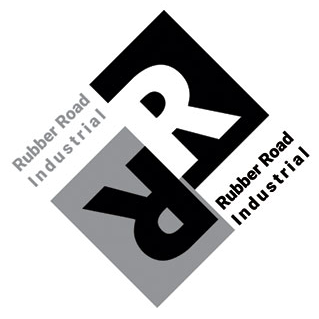A long and winding road
Some of the oldest rubber trees of the kind Havea Brasilensis, which still produce the white latex milk that our business relies on today, were planted around the time when Fawzi Bahou opened his first rubber factory right in the heart of Amman city in 1952. Since that time the Bahou Family never stopped producing rubber parts and compounds for a myriad of applications across the MENA region. The vision Fawzi Bahou bequeathed to all of us is to grow a business like a rubber tree: provide the right conditions and have patience. This, besides keeping up to date with technology and constantly innovating, will grow a business and create value for generations. After Fawzi Bahou’s death in 2008 the company had grown into a fleet of rubber manufacturers, run by three of his sons.
Hussam Bahou has loved horses since his childhood. Before stepping into his father’s shoes, he trained for “show jumping” and won numerous competitions, including the title of “champion of champions” in 2011. “If you want to call yourself an entrepreneur you must risk falling off the back of the horse; and if you do, you get right back on it!” This became his motto. So, it is often the setbacks in life that teach us lessons train our judgment. Husam Bahou’s endeavors both, in business venture creation, and in social entrepreneurship, were fueled by his eagerness to keep innovating and the urge to unlock people’s potentials and making a meaningful difference.

In 2017 Hussam Bahou met Philipp Dorstewitz, a professor at the local university, and this was the beginning of a long friendship. Their work-partnership began, when Dr Dorstewitz was approached by the Ministry of Education to teach a course in innovation an entrepreneurship for the prestigious ESTEDAD program. He introduced Hussam Bahou to co-teach the course with him as an experienced entrepreneur. This collaboration led to and intellectual chain-reaction that ultimately spawned the idea of refounding the Bahou Rubber Company under the name of Rubber Road Industries L.L.C. with an entire new theoretical underpinning.
Philipp Dorstewitz had spent much of his academic career studying human intelligence in planning and problem-solving. He had come to the conclusion that we are best at what we are doing if we do not merely aim at fixing a given problem, or providing a requested product or service, but when we understand all our endeavors as learning to cope within an evolving environment. Applied to our business it means that we aim at more than producing parts according to customer specifications: we endeavor to understand and improve the services we are providing, and we see ourselves as partners of our clients in developing and re-designing their products and processes.
The sea-change away from a linear supply-chain model of doing business toward thinking of our enterprise as part of a business ecosystem is central to our self-understanding. This leads us to focus on our field of various stakeholders and seek to forge long-term partnerships that provide resilience in view of uncertainty rather than short term profits.
